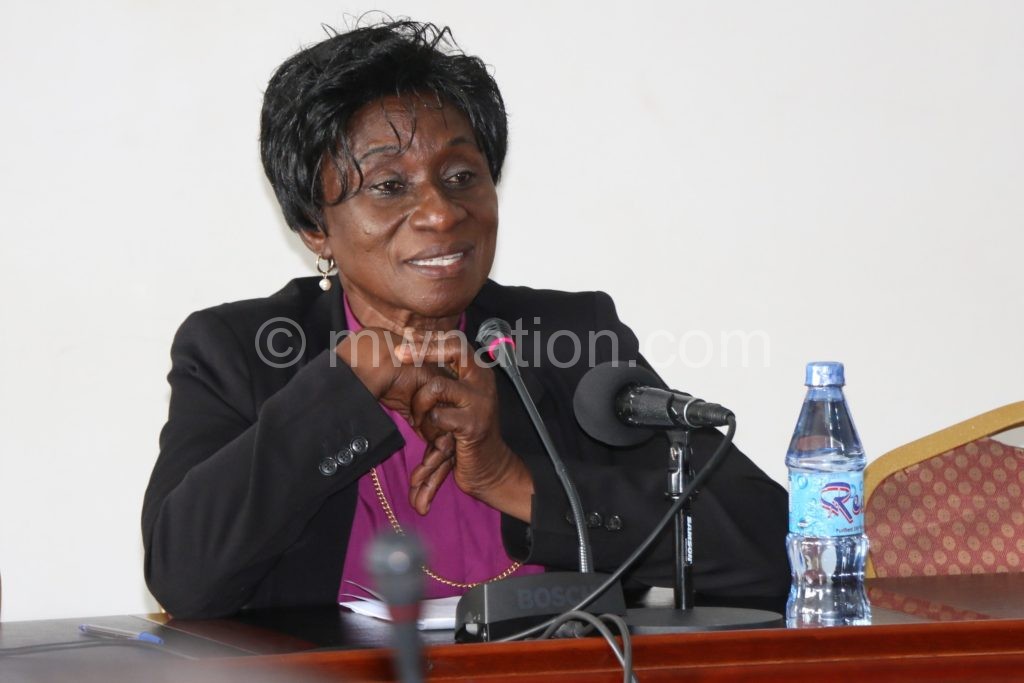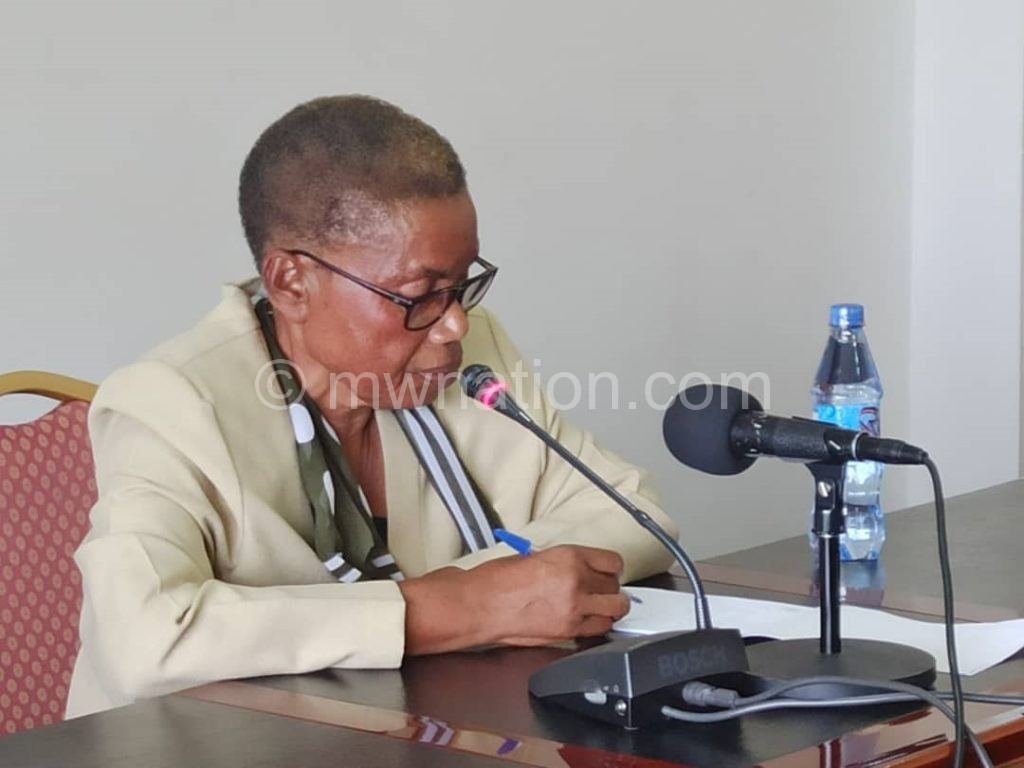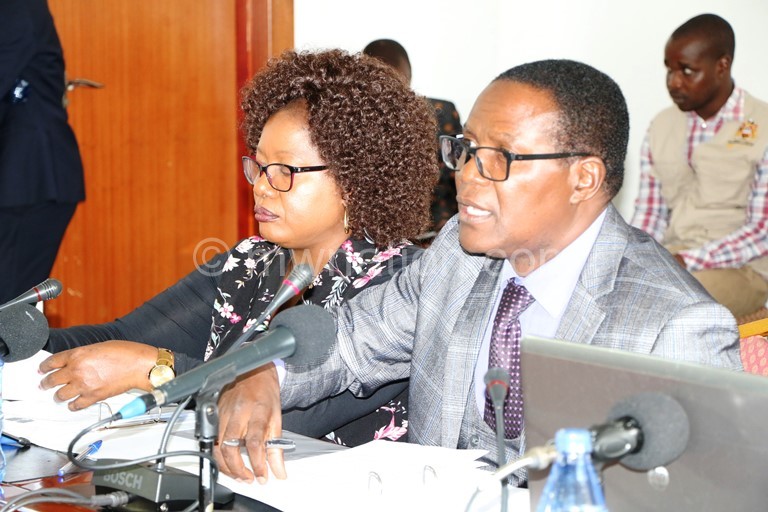MEC mess
There were mixed signals from the first two commissioners of Malawi Electoral Commission (MEC) who appeared before Parliament’s Public Appointments Committee (PAC) inquiry on Monday, but what stood out was Mary Nkosi’s testimony that exposed a compromised electoral system.
A private practice lawyer and representatives of the petitioners in the presidential election nullification petition have described her testimony at Parliament Building in Lilongwe, broadcast live on radio, as a vindication of the Constitutional Court findings that the electoral body incompetently managed the May 21 2019 Tripartite Elections, especially in the management of the presidential election results.

Nkosi, a former Reserve Bank of Malawi (RBM) deputy governor appointed commissioner on June 6 2016, told the inquiry assessing MEC’s competence that many key decisions were made by chairperson Jane Ansah, chief elections officer Sam Alfandika and “some commissioners” without the knowledge of other commissioners.

Here she cited how she and the other commissioners were made to sign for presidential election results a day after Ansah had already declared President Peter Mutharika of Democratic Progressive Party (DPP) as the winner.
Nkosi said she was devastated by the findings of the five-judge panel of the High Court of Malawi sitting as the Constitutional Court that there were serious irregularities in the presidential race that she considered resigning.
But she said her lawyer colleague advised her against quitting until after the public enquiry Parliament has instituted following the court’s nullification of the presidential election.
However, Nkosi said that during the three years and eight months she has served MEC, the commissioners worked hard to deliver a credible election by putting in place measures, including auditors as a best-practice plan adopted from some neighbouring countries.

She said: “But things broke loose on polling day and thereafter.”
When asked to assess MEC on a scale of one to 10 with 10 as the best, Nkosi gave a score of seven and said the three points lost would be for “surprising” MEC system failures during and after the elections.
She also said she was not alerted that the commissioners’ earlier decision not to use teachers as polling staff was unilaterally reserved at the eleventh hour. Further, she said she was not consulted on the letter MEC wrote instructing auditors BDO to process altered Form 66C data.
To improve election management, Nkosi suggested the need for balance in the composition of MEC to check against the dominance of one political party or forcing members to peddle political, instead of rational, decisions benefitting the nation.
In the current commission, appointed on June 6 2016, DPP has four representatives in Jean Mathanga, Moffat Banda, the Reverend Killion Mgawi and the Reverend Clifford Baloyi while United Democratic Front (UDF) has Yahaya M’madi and Elvey Mtafu. People’s Party (PP) is represented by Linda Kunje and Malawi Congress Party (MCP) Nkosi.
The Electoral Commission Act empowers the President, subject to the Constitution and in consultation with the leaders of political parties represented in the National Assembly, to appoint suitably qualified persons to be members of the commission on such terms and conditions as the Public Appointments Committee of Parliament shall determine.
Next to appear before the committee was Mtafu, but her session ended abruptly after committee chairperson Collins Kajawa noted that the commissioner was evasive and seemed not prepared to give responses to the questions.
He said: “We are here representing Malawians and we do not want to take lies. She received the summons on Friday and we expected the commissioner to have been prepared. But she looked as if she was never prepared.”
Questions posed to Mtafu included one seeking an explanation on why the commission allowed presiding officers to alter results using the correction fluid Tippex when the law does not allow them to amend figures at their level and at the constituency or district levels.
But in her response she said: “Tippex was there as results were already coming from districts. As we were providing resources, we did not provide Tippex.
“We noticed that there was Tippex and we went back to the auditors and sought guidance on how we could handle that. Auditors told us that that did not affect the results, so we said if figures are adding up, it was ok…”
Reacting to on Monday’s developments at the enquiry, lawyer John-Gift Makhwawa, former president of the Malawi Law Society (MLS), said: “The events today vindicate the indictment by the Constitutional Court. It shows there were serious issues and commissioner Mtafu was very evasive.
“What I would expect the commissioners to be doing is to defend the court evidence.”
MCP spokesperson the Reverend Maurice Munthali on Monday called for the immediate resignation of the whole MEC commission, saying both the Constitutional Court and PAC hearings on Monday have exposed failure and negligence by the electoral body.
UTM Party spokesperson Joseph Chidanti Malunga said the first day of the hearing confirmed the party’s publicly stated position that MEC messed up the elections.
In the May 25 2019 letter, three days after polling and two days before MEC announced official presidential election results, UTM Party presidential candidate Saulos Chilima said he had “observed with concern” that serious irregularities identified and reported had not been addressed and satisfactorily dealt with.
He said: “These serious irregularities have, in fact, worsened and, in the process, the credibility and integrity of these elections have been significantly compromised.”
Chilima demanded that the elections should be nullified, a statement of the aggregated vote and that announcement of the winner should be based on verified aggregated vote.
The inquiry follows a landmark ruling the court delivered on February 3 nullifying the May 21 2019 presidential election and ordering a fresh poll within 150 days, citing anomalies and irregularities. In the case, Chilima was the first petitioner with MCP president Lazarus Chakwera as the second petitioner. MEC, on the other hand, was the second respondent and Mutharika the first respondent by virtue of being the declared winner.





